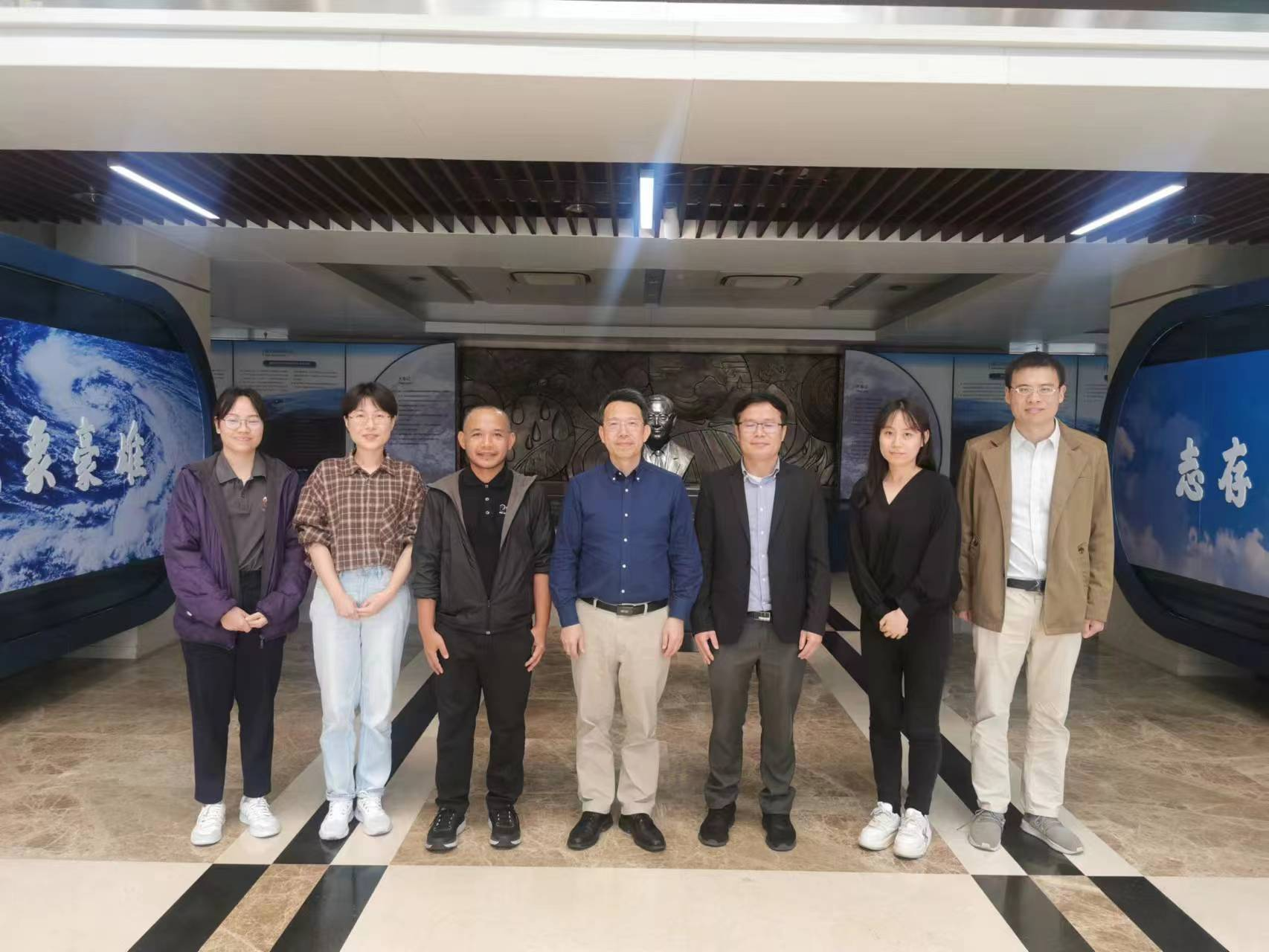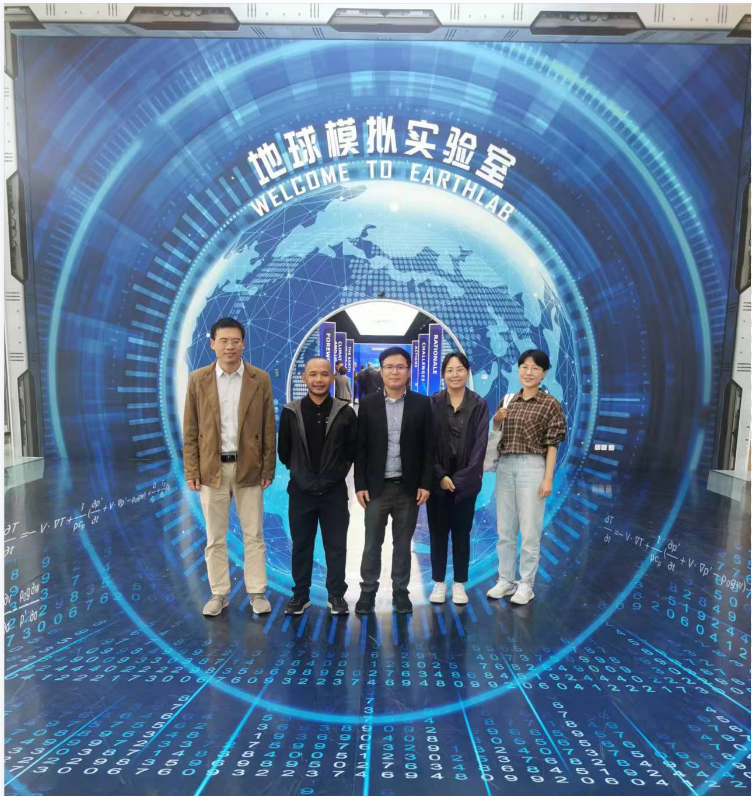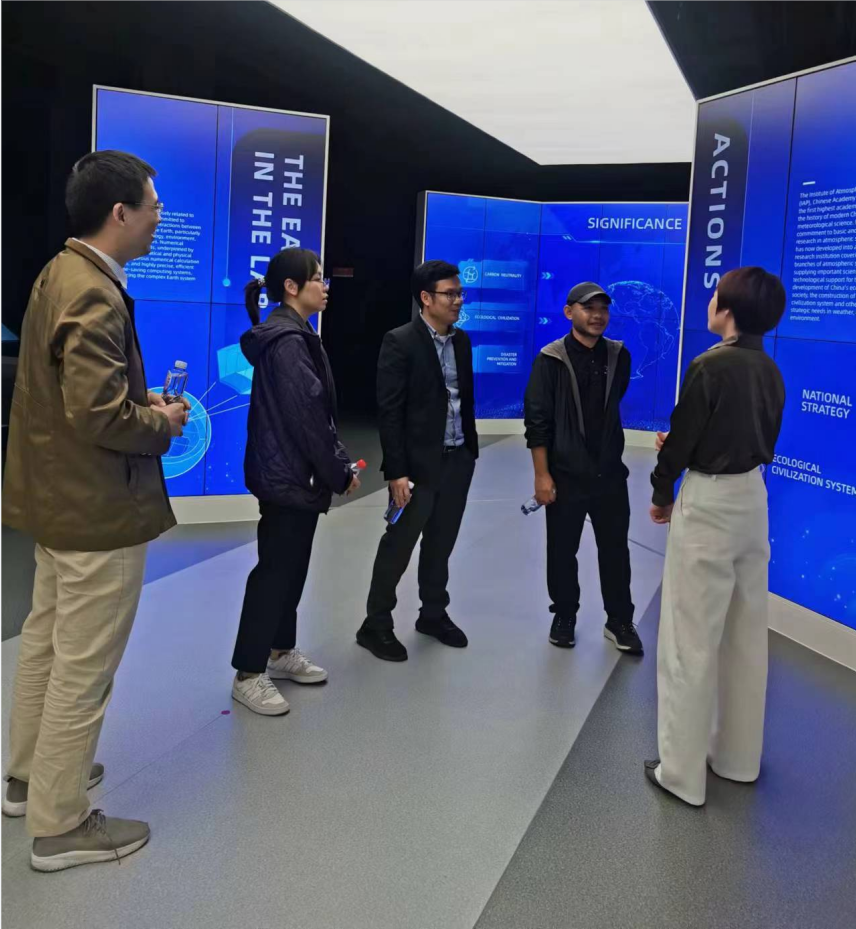On 12 October 2023, Dr. Chakrit Chotamonsak and Ms. Duangnapha Lapyai from Chiang Mai University, Dr. Kritanai Torsri Hydro-Informatics Institute visited ICCES and met with researchers of ICCES, Prof. Zhaohui Lin, Director of ICCES and Dr. Wu Chenglai attended the meeting. In the afternoon, the delegation visited The Earth System Science Numerical Simulator Facility of Miyun campus of Institute of Atmospheric Physics. Dr. Meichun CAO accompanied the visit and introduced the EarthLab.
Dr. Chakrit Chotamonsak is from the Department of Geography, Chiang Mai University, Thailand. His main research interests are regional climate simulation, climate change impacts, climate variability, etc. Dr. Chakrit Chotamonsak was invited to attend the CTWF held by ICCES and gave a presentation. Dr. Kritanai Torsri, from Hydro-Informatics Institute, who studied his doctoral degree in ICCES under CAS-TWAS Scholarship program and successfully completed in August 2020. After returning to Thailand, he was the PI of the Thai national project "Subseasonal-Seasonal Weather and Climate Disaster Prediction" and actively promoted China and Thailand cooperation to jointly carry out cooperative research on S2S forecasting. Prof. Zhaohui Lin, Dr. Chenglai Wu and Dr. Chakrit Chotamonsak had in-depth exchanges and discussions on regional climate prediction, wildfire simulation and climate effects in Southeast Asia, application of new land use data to climate models, soil moisture simulation and the impact of abnormal signals on short-term climate prediction. The recent research progress is also exchanged. The two sides agreed to continue to carry out high-quality cooperation in data sharing, utilization of supercomputing resources, personnel training, mutual visits and exchanges, and cooperative research in the future.
In the afternoon, Thai guests visited The Earth System Science Numerical Simulator Facility of Miyun campus of Institute of Atmospheric Physics, Dr. Cao introduced the EarthLab to the Thai guests. The EarthLab is the first dedicated earth system numerical simulation device in China with independent intellectual property rights, and the scale and comprehensive technical level are at the forefront of the world. Approved by the National Development and Reform Commission in 2018, the project began construction in full, and passed acceptance in 2022. Its core software is the Earth system model independently developed by the Institute of Atmospheric Physics of the Chinese Academy of Sciences, which integrates and coupling seven sub-system models including atmosphere, ocean, land surface, vegetation ecology, atmospheric chemistry, Marine biochemistry and terrestrial biochemistry, and can simulate the evolution law of atmosphere, hydrosphere, cryosphere, lithosphere and biosphere. Inversion of the Earth's past, observation of the present, and prediction of the future. Thai guests visited the science popularization exhibition hall of the facility together. The exhibition hall was hung with a LED spherical screen with a diameter of 3 meters and a definition of 5K. Some results of the simulation experiment of the device would be visually displayed through the sphere. Then they visited the computer hardware platform of the Earth System numerical Simulation device "Silicon Cube", which is a large computer room with two to four layers of supercomputers in operation and one layer of storage devices. The EarthLab can serve the scientific research needs of addressing climate change, ecological environment construction, disaster prevention and reduction, and provide strong scientific support for international climate and environmental negotiations. In addition, as a CAS-TWAS Center of Excellence, ICCES will build an international joint research network based on the "EarthLab", to setup a joint open fund for researchers from developing countries, in order to attract scholars to participate in the development of the CAS-ESM and its application in the response to climate change. Dr. Chakrit Chotamonsak and Thai guests praised the scale and advanced nature of the EarthLab, and showed great interest in its research results related to climate change, short-term climate prediction, pollution prediction and control, etc.

Researchers from Chiang Mai University, Hydro-Informatics Institute visited ICCES

Researchers from Chiang Mai University, Hydro-Informatics Institute visited EarthLab

曹美春博士为泰国Chakrit Chotamonsak助理教授一行介绍大装置的建设历史和研究成果